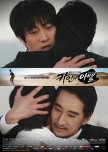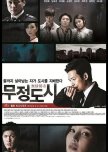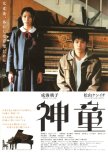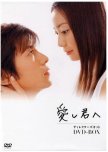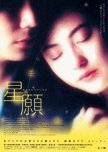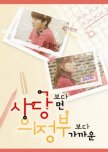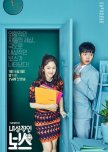 Korean Heroes and Heroes of the Year 1990; 1st Segment
Korean Heroes and Heroes of the Year 1990; 1st Segment - Română
- 中文(简体)
- English
- magyar / magyar nyelv
- Titlu Nativ: 눈꽃
- De asemenea cunoscut ca și: Snow Flakes
- Scenarist: Park Jin Woo
- Regizor: Lee Jong Soo
- Genuri: Romantism, Dramă
Cast și credite
- Kim Hee Ae Rol Principal
- Lee Jae RyongYoo Keon HeeRol Principal
- Kim Ki Bum Rol Principal
- Lee Chan Rol Principal
- Kim Young Ok[Kang Ae's mother]Rolul de Sprijin
Recenzie

Această recenzie poate conține spoilere
Timelessly dealing with crucial mis-communication issues in families. (Here: single parenting, too)
In a way, the title "Snow Flower" symbolically refers to a time when the love of the protagonist´s parents was still full of happiness. However, the KDrama actually comes along as a study about communication difficulties and misunderstandings between a single mother and her young daughter where the daughter is struggling with the question: why can't she grow up with mother AND father, like other children do? There must be someone to blame for this – The father? The mother? Or even herself... "Snow Flower" dates back to 2006, yet dealing with crucial educational issues in a timeless manner.In KDrama style, the story is enriched with a variety of dramaturgical colors. However, the sticks and stones are (unfortunately) not all absurd. This and That may be culture specific, but overall I think "Snow Flower" offers a wonderful (though not so fun to watch) study about mis-communication, which are (varying in intensity and severity) experienced by many families (and relationships) all around the world. Go Ara won Best Actress at Baeksang Arts Awards, i.e. for her great performance as a rebellious daughter. At her side strong as usual: Kim Hee-ae.
SBS tackled a topic that washes unloved laundry, because in South Korea family issues in education are a private matter, happening behind closed doors and being nobody's business. Actually, the family here is quite progressive. The mother is a single parent and successful writer, dating an art professor. Two neighbouring families, with their doors always open for each other – practically an extended family with no room for secrets.
Yet, a progressive attitude towards life alone has very little to do with the communication traps in family life. The mother falls into these traps, and so does the daughter, having inherited her mother's temperament. It's sometimes painful to witness, how one or the other keeps reacting to another and another red flag, blindly fighting back within seconds and thus creating conflicts that cannot be resolved, as the explosion has already been set off before communication is possible.
The offering of this KDrama: while we have to listen to their fights, we are also do participate here and there, in what they are quietly thinking and feeling, too. Thus, "Snow Flower" does not ONLY want to stage DramaDramaDrama with this conflictual mother-daughter relationship, but is also committed to an educational mission. (You may also want to check the side note below.) The background is embedded in the world of the filming industry and rooted in the handicap of single parents and divorced families.
So in "Snow Flower" the deeply disappointed and insecure daughter pushes her thing through, while the mother doesn't succeed in letting go of her well-meant (those are the worst) templates. Up to the bitter end. That's impressive. Startling, too.
p.s.:
Some may say – and I agree – the mother-daughter communication is most of the time so off the charts. It's scary sometimes. Nevertheless and actually because of that, (in my opinion) the script and the actresses do their job quite well. (However, one does not have to like it...)
Due to the given occasion: here is a side note on the communication problem between Dami and her mother, which (unfortunately) many families struggle with more or less severely. (By the way, as such conflicts are happening within the ´best´ families, professional coaching is available – and might have been a solution for Dami and her Mom, too.)
------------------------------------------------------------------------------------------------------------------------------------
SIDE NOTE --- on the widespread communication problem between parents and children ---
Even though opposition is rather due to attitude, position or opinion and is nothing personal as such, emotionally this can be hardly distinguished in the heat of the moment. How liberating it would be, if both parent and child would listen carefully, ask questions, and try to reach mutual understanding. Some call it communication…
In many conflicting situations, it is first and foremost about being noticed and understood by the other person. Thus you have to show yourself. Self-confident in who you are and what you want or are afraid of. As a result, the conflict resolution in the matter is actually not that difficult anymore.
Win-win, so to speak.
(Easier said than done… Most of the time, a more or less pronounced self-doubt, for example a thorn of guilt or inferiority, subtly gnaws at the foundation of a sincere, self-confident presence - in parents and children alike.)
However we my look at it, most of the time we have to do something for mutual understanding. Yet, more than other relationships, mother and daughter are probably predestined to believe that they can take this 'understanding' for granted without a process of understanding – after all, it is about 'their own flesh and blood', isn´t it.
Incorrect! These are two individual people with their own will, their own memory, their own experiences, their own desires and their own interests. Blood/love aside... Thinking that you know the other person well does not replace the need to invest time, patience and a willingness to cooperate in understanding again and again.
'Are you making a relationship statement here?', ´Are you trying to be practical?'. ´Is that a request?´, ´Do you actually want to reveal something about yourself right now?´, ´What do you want?´, ´What do I want?´ … All this requires consideration. Again and again! And 'again and again' means, strictly speaking: 'often' or even 'constantly'. After all, parents and their children usually share the apartment, show themselves without make-up in many respects, see each other first and last every day and plenty in between. There are many chances of contact/friction. Annoying communication can get on your nerves, yes. You have no time, you are stressed already, you are not in the mood...
Consequently we mostly choose a quick judgement, because that is more economical. A preconceived notion, a prejudice that doesn't seem worth trying to test. But in doing so, we might be hardening the fronts, and thus the roller shutters go down. There is no forward (e.g. solution) and no backward (e.g. bonding). Lose-lose, so to speak.
"Snow Flower" impressively portrays how such confirmedly unresolved conflict situations encourage the child (here the daughter Dami) to finally repay the parents (here the mother) at some point. This crucial moment was actually (as so often) triggered by a key event.
Suppressing her need to be close to her mother and to wanting to feel connected and loved, Dami now deliberately treats her mother the way she FEELS treated herself (without having confirmed any of that, of course). The need and longing hasn't gone away. It's just relegated to an unconscious level for the time being. Consciously and outrageously she rather strikes back in defiance, deliberately wanting to hurt – just as she feels hurt. "I don't do any university entrance exams". "I don't even want to study." "Then I'll just move out." And underneath (pronounced or not) linger disappointment and self-doubt, e.g. "I'm probably not worthy of being loved." "It would be better if I didn't exist at all"…
Dami navigates between the roles of perpetrator and victim and doesn't get what she actually wants in either of them. Yet, both are ROLES, and not her true SELF.
Additionally, in her newly discovered role as a perpetrator Dami even worsens the situation in an almost fatal way, because such a defiant reaction is considered extremely immature by parents. In the case of Dami´s mother, this inevitably leads to the conclusion that she should actually take more even control. However, by boldly taking her parenting responsibilities back into her hands, she only adds fuel to the fire.
The past that led to this dilemma is long history for both of them. Both feel they did their best. In terms of communication, however, this is not the case. They may have 'meant well' for the sake of peace, but they didn't communicate what´s actually on their MIND. Well, what´s on my mind is 'Mine' and not 'Yours', until I let you know.
To disagree is not the problem. Different perspectives and intentions are normal. Unfortunately, a cooperation oriented process of communicating is not...
Considerați utilă această recenzie?

Problematic writing
This is the worst mother-daughter relationship ever written. The writer is completely clueless on how to write relationships. The same goes for the father-daughter and other relationship dynamics in the drama. In fact, writing in general was awful. The story itself was too thin with little to no content. No one met the father in person until episode 11 which they had to because they needed to stretch it. It deserves even a lower rating. The writer couldn't even write a generic ending. It was meant to be focused on the mother daughter dynamic but the mother decided to die alone with her doctor friend. Not with her daughter or the ex-husband or the boyfriend. They never told the daughter about her illness until she found out suddenly that her mother died. All what the daughter got was a generic email 1 year later after her mother's death. Shitty ending with no climax, you would expect at the very least some good one final good bye dialogue between the mother and her daughter.Considerați utilă această recenzie?
Recomandări
There have been no recommendations submitted. Be the first and add one.









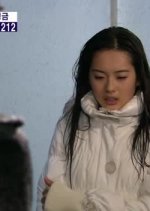
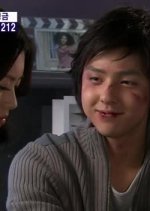
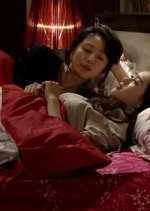
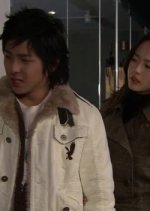
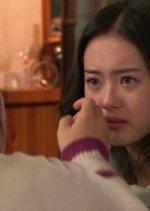
 1
1





